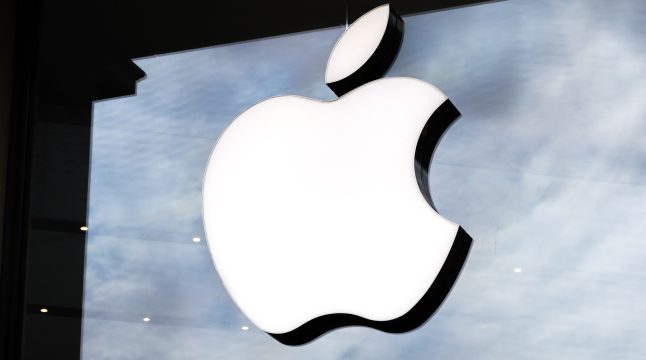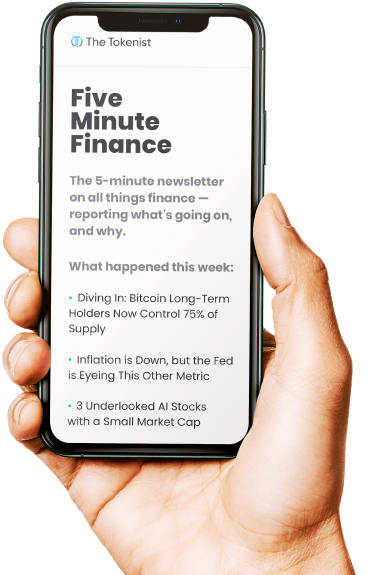
Why Apple is Protected from Trump Admin’s Semiconductor Tariff Plans
Apple CEO Tim Cook announced a massive $100 billion commitment to U.S. manufacturing on Wednesday, just as President Trump revealed plans for 100% tariffs on imported semiconductors.
The strategic timing of Apple’s investment announcement, which brings the company’s total U.S. commitment to $600 billion over four years, appears designed to secure exemption from potentially devastating trade levies.
Trump explicitly stated that companies manufacturing in the U.S. or committed to doing so would be exempt from the new tariffs, providing Apple with crucial protection during its most important sales period.
Apple’s Strategic Tariff Avoidance Through Manufacturing Commitments
Apple’s announcement comes at a critical juncture as Trump’s administration implemented sweeping tariffs of 10% to 50% on goods from dozens of trading partners, with smartphones notably exempt from the India levies.
The timing was particularly crucial given Apple’s reliance on overseas manufacturing, with most U.S.-bound iPhones produced in India and key components sourced globally. CEO Tim Cook acknowledged that tariffs would still cost the company $1.1 billion this quarter, but the exemption shields Apple from far more severe impact during the crucial September iPhone launch and holiday season.
The new American Manufacturing Program (AMP) represents a significant expansion of Apple’s existing U.S. supply chain investments, partnering with companies like Corning, Texas Instruments, Samsung, and TSMC.
Apple’s strategy includes building an end-to-end silicon supply chain in America, with partners producing over 19 billion chips for Apple products in 2025. The company plans to directly hire 20,000 people in the U.S., primarily focused on R&D, silicon engineering, and AI development.
Trump praised Apple’s commitment, stating “he’s not making this kind of investment anywhere in the world, not even close.”
The exemption policy creates a clear incentive structure favoring large, cash-rich companies that can afford substantial U.S. investments. Apple’s diversified supply chain, built over five years to reduce China dependence during COVID, positions the company well to navigate the complex tariff landscape while smaller competitors may struggle with compliance costs.
The manufacturing commitments extend beyond mere tariff avoidance, with Apple establishing facilities across multiple states including Arizona, Texas, Kentucky, and North Carolina. The company’s $500 million rare earth magnet deal with MP Materials and partnerships for advanced chip packaging demonstrate a comprehensive approach to supply chain localization that serves both geopolitical and business objectives.
Join our Telegram group and never miss a breaking digital asset story.
Economic Impact of 100% Semiconductor Tariffs on Global Trade
The proposed 100% tariffs on imported semiconductors represent one of the most aggressive trade measures in recent history, with potentially catastrophic effects for countries heavily dependent on U.S. chip exports. Industry leaders in the Philippines warned the policy would be “devastating,” while Malaysia’s trade minister cautioned about losing competitiveness in a major market. The tariffs create a stark divide between companies with U.S. manufacturing capabilities and those reliant on overseas production, fundamentally reshaping global semiconductor supply chains.
South Korea negotiated favorable treatment for Samsung Electronics and SK Hynix under existing trade agreements, highlighting how bilateral relationships can mitigate tariff impact.
However, Chinese companies like SMIC and Huawei are expected to face the full tariff burden, intensifying U.S.-China technology competition. The policy effectively weaponizes America’s massive chip consumption market to force manufacturing reshoring, creating winners and losers based on companies’ ability to rapidly establish U.S. operations.
The semiconductor industry’s complex global integration makes the 100% tariff particularly disruptive, as chips often cross multiple borders during production. Taiwan’s TSMC, already building Arizona facilities, appears positioned to benefit from the exemption policy, while smaller Asian manufacturers face potential market exclusion.
The tariffs could accelerate the fragmentation of global chip supply chains into competing regional blocs, undermining decades of international specialization and potentially raising costs for consumers worldwide.
Economic analysts warn that such steep tariffs typically result in higher consumer prices, reduced competition, and potential retaliation from affected countries.
AAPL Stock Performance and Market Outlook
Apple shares surged in premarket trading Thursday, reaching $219.92, up 3.12% from the previous close of $213.25, as investors welcomed the tariff exemption news.
The stock had gained 5.09% in Wednesday’s regular session following the manufacturing commitment announcement, demonstrating market confidence in Apple’s strategic positioning. With a market capitalization of $3.16 trillion, Apple remains one of the world’s most valuable companies despite facing headwinds in the artificial intelligence sector.
The company’s current trading metrics reflect both opportunities and challenges, with a trailing P/E ratio of 32.36 and forward P/E of 26.95, indicating premium valuations that require continued growth to justify investor confidence.
Apple’s year-to-date performance shows a decline of 14.64% compared to the S&P 500’s 7.88% gain, reflecting investor concerns about the company’s AI strategy and competitive positioning against rivals like Nvidia and Microsoft, both of which have reached $4 trillion market capitalizations.
Analysts maintain cautiously optimistic ratings on Apple, with price targets ranging from $175 to $300, and an average target of $233.11. The tariff exemption removes a significant near-term risk factor, but longer-term challenges remain around Apple’s AI capabilities and product innovation pipeline.
Apple’s strong financial position, with $55.37 billion in cash and robust free cash flow of $94.87 billion, provides flexibility to navigate trade uncertainties while investing in growth initiatives. The company’s diversified revenue streams and loyal customer base offer defensive characteristics, but success in emerging technologies like artificial intelligence will ultimately determine whether Apple can maintain its premium market position and justify current valuations in an increasingly competitive landscape.
Disclaimer: The author does not hold or have a position in any securities discussed in the article. All stock prices were quoted at the time of writing.




